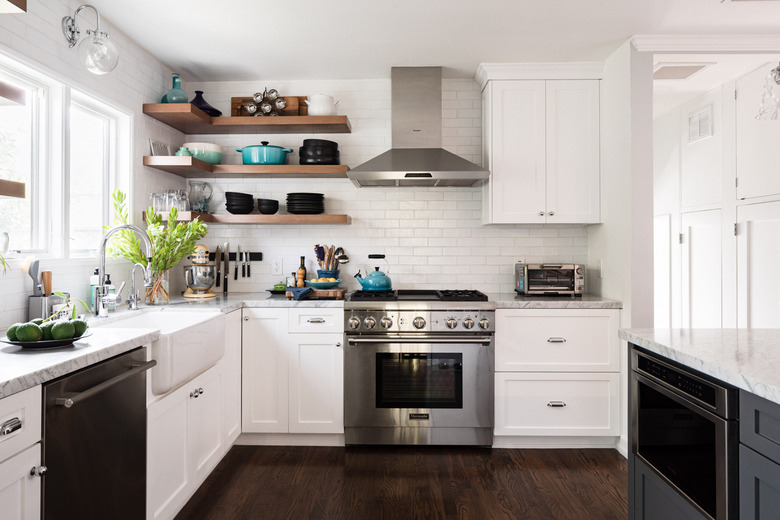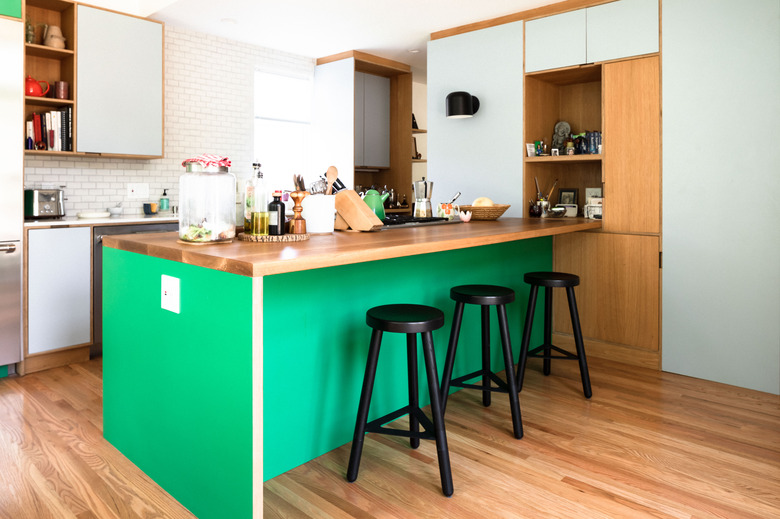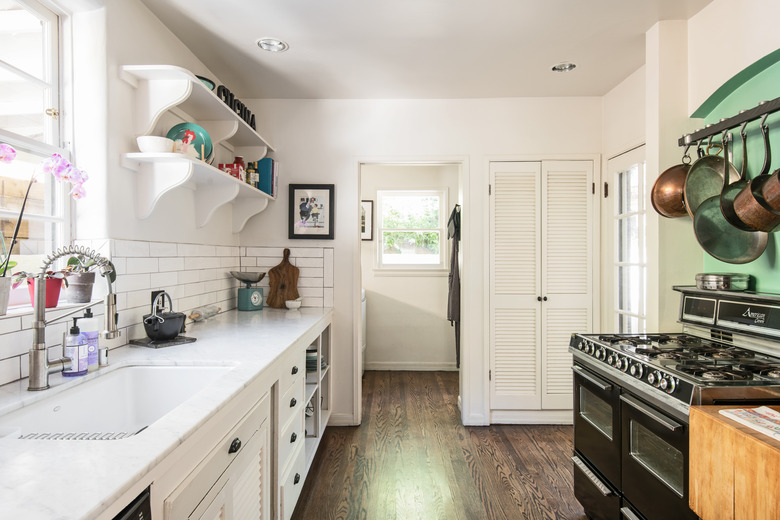How To Choose The Best Kitchen Floor
If you spend a lot of time in your kitchen, or if you're simply looking to your next home improvement project, upgrading your kitchen flooring may be a great investment to explore. With several flooring options available, choosing the right one for your home and lifestyle will require a few considerations. Some basic factors to consider when choosing a floor include how much foot traffic you expect it to see, whether you have children or pets and, of course, your budget.
Considerations When Choosing a Flooring Option
Considerations When Choosing a Flooring Option
When you think about the right flooring option for your kitchen, one of the first things you should consider is durability. Homes with children and pets can usually expect to see more wear and tear than homes without them, so a flooring type that won't show a lot of scratches or scuffs may be ideal for such situations.
Additionally, your flooring shouldn't require more cleaning that you can handle or are willing to perform. For example, the grout used with tile flooring can become dingy over time if it's unsealed and will require additional cleaning, which may not make practical sense for a household that's always on the go or can't make time for the occasional deep scrubbing.
When undertaking any home renovation project, you must make choices that fall within your financial means. Flooring, like many upgrades, can be considered an investment and isn't a choice on which you should skimp, but if the price of the flooring has you stretching pennies too far, then it's just not the best kitchen flooring for you at this time.
To save on kitchen flooring renovation costs, you may want to consider options that can be done via a DIY method, which will save you on the installation costs that come with working with a professional company. Some popular DIY kitchen flooring options include vinyl and engineered hardwood, either of which are represented on the low and high end of the pricing scale.
Kitchen Flooring Options: Linoleum, Vinyl and Tile
Kitchen Flooring Options: Linoleum, Vinyl and Tile
Linoleum and vinyl are common kitchen flooring options since they are the most cost effective to purchase and install. They can often be installed as a DIY project as sheets or tiles.
Either of these flooring types hold up well to moisture. They are easy to clean and are offered in a variety of styles and designs to make your home look beautiful and modern. However, linoleum and vinyl are both prone to tearing, and scratches show up easily, which can make it an unattractive choice in the long run if your kitchen sees a lot of foot traffic.
Porcelain tile is celebrated for its durability and stain-resistant nature, which can make it a great choice if you have kids or pets who may track footprints or contribute to spills on a regular basis. It also stands up to wetness and moisture very well and is much less expensive than stone tiles made from a material like slate. According to HomeAdvisor, porcelain tiles generally cost between $3 and $10 per square foot, whereas slate runs from $5 to $15 per square foot.
On the other hand, porcelain is more expensive than ceramic tile, and it can be hard on the feet. This may make it an impractical choice if you tend to spend a lot of time working in the kitchen on a regular basis. You can install porcelain yourself, although the process is time consuming and requires more tools than the average homeowner has on hand (like a saw to cut tile).
Engineered Hardwood and Cork Flooring
Engineered Hardwood and Cork Flooring
If you like the look of wood floors in your home, engineered hardwood planks can be a good choice for kitchens, as they hold up to moisture better than solid hardwood. This type of flooring looks very similar to solid hardwood but is much easier to pull off as a DIY home installation. It can be laid as a floating floor, which is a great option if you don't wish to glue boards down to a subfloor made of wood or concrete.
Engineered wood is easy to clean and is incredibly durable. It can last anywhere from 20 to 80 years depending on the thickness of the planks used, according to Old House Journal. Unfortunately, engineered hardwood is on average more expensive than vinyl.
Cork floors may be the best choice for anyone with young children since they have a softer surface than most types of flooring, they are slip-resistant, and they are mold repellent, which can reduce health risks like respiratory infections that are associated with mold. On the other hand, cork does scratch easily, can dent under heavy weight, and requires resealing every few years.
Once sealed, however, cork floors aren't easily stained, which can make them ideal for places like kitchens, where spills are common. Cork can be installed as a floating floor, ideally over a surface like plywood, and installation can be done by most homeowners in as little as a weekend.
Making the Right Choice
Making the Right Choice
Keeping all of this information in mind can help you make the right choice when committing to the best kitchen flooring for you and your family. When considering your options, it's best to ask yourself how much your kitchen gets used, who will be walking and standing on the floors, how much moisture exposure your floors can expect, your installation method and your budget.
- Linoleum or vinyl flooring. This is the most cost-effective option and can be installed by most people without the help of a professional. It will hold up well in kitchens that may be exposed to moisture and frequent spills and cleans easily and quickly, so either could be ideal for those with young kids or pets.
- Porcelain tile. Durable and stain-resistant, porcelain tile can be a good choice for homes with pets or that see heavy foot traffic. It is a hard surface and may not be ideal for long hours in the kitchen or homes with young kids. Porcelain can be installed by homeowners, although many find it best to enlist the help of a professional, which will add to the expense.
- Engineered wood. Engineered wood will add value to your home in the long run. This flooring type holds up well to moisture and spills, is easy to clean and will last a long time, making it a great choice for kitchens that see heavy use. Engineered wood can also be installed as a DIY project.
- Cork flooring. Soft and stain-, slip- and mold-resistant, cork is the clear choice for families with young children but probably not pets because it can scratch and dent easily. Cork can be installed as a DIY project and isn't necessarily the most expensive option, but it will require resealing every few years, which will add to the overall cost in the long run.


